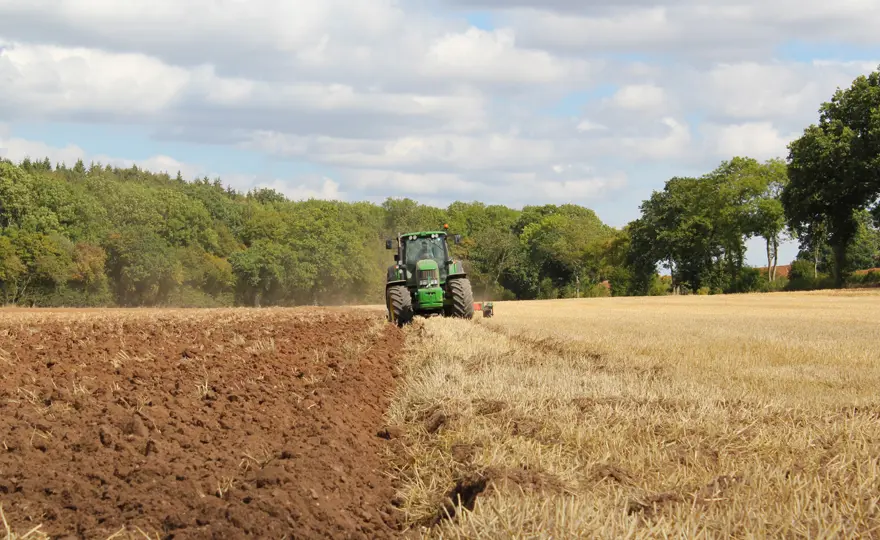ClientEarth Communications
23rd October 2020


There are few sectors as large and as essential as farming. The task of feeding nations is a towering feat and some of the EU’s most major policies work to ensure farmers can continue to meet the Union’s needs.
In the EU 35% (€58 billion) of the annual budget goes to farmers via the Common Agricultural Policy (CAP).
Today, food systems account for nearly one third of greenhouse gas emissions and consume huge amounts of natural resources, which degrade habitats and endanger species. This is eliminating wildlife and habitats around the globe, causing a range of negative health impacts and too often, there are unfair economic returns for producers.
As the major job of keeping the population fed puts more and more strain on the planet that keeps us alive, EU leaders face a challenge: making sure producing food and protecting nature are part of the same project – not opposing ones.
In the EU, there are two main responses to this challenge: one is the reform of the immense subsidy vehicle the CAP; and the other is the ‘Farm to Fork’ strategy. The latter is part of the European Commission’s iconic European Green Deal, which aims to build our resilience to future climate threats, as well as supporting a green recovery following the pandemic.
The highly anticipated Farm to Fork Strategy, published in 2020, sets out an ambitious roadmap to make food systems fair, healthy and environmentally positive. It has the potential to transform the European food system for the better, but its true value will only be unlocked if supported by an equally ambitious and environmentally consistent CAP. In fact, without a remodelled CAP, the transformational potential of Farm to Fork will be entirely blocked.
However, the CAP post-2020 reform proposal, which was put forward by the former Commission, has been strongly criticised as it now conflicts with the current Commission’s climate-tilted political mandate and policies. Not only does it fail to enable the potential power of the Farm to Fork Strategy, but also undermines the European Green Deal at large.
In a letter sent to the Commission, our lawyers argued that the Commission’s failure to align with CAP proposal with new climate, environment and biodiversity commitments under the European Green Deal may be illegal.
According to our lawyers, “failure to act” to resolve this inconsistency may be a violation of the Commission’s legal duties.
ClientEarth’s Agriculture Project Lead Marc Pittie said: “This situation is bewildering. The European Commission is proposing to spend around a third of the EU budget on a reformed CAP which it knows to be inconsistent with the ambition of the European Green Deal – even though it also knows there are ways to bridge the gaps, and it has the power to propose to the Parliament and Council to do so.”
The Commission would not only have been within its legal rights to withdraw or amend the proposal before the Council of the EU acted on it, but was actually legally obliged to. Instead, it has stubbornly ploughed ahead with an inadequate proposal, leaving it up to the remaining EU institutions to turn its own environmentally ambitious policies into legislation.
The future of the CAP is now in the hands of the Council of the European Union and European Parliament who have notoriously been dragging their feet over the CAP reform for decades and have teamed up with major farm and agribusiness corporate lobby groups to keep the status quo of the CAP mostly unchanged.
Worryingly, our lawyers argue that the upcoming vote on the CAP reform is at further risk of breaching the EU Treaties, as the work of the Council of the European Union is being prepared by a committee, which according to our lawyers, is operating unlawfully.
The specialised committee, which was created as a temporary body 60 years ago, is not bound to make sure EU policies are consistent with each other, which puts it at high risk of it promoting a version of the CAP that does not reflect the EU green agenda.
The need for consistency among EU policies has never been more crucial. However, this special committee presents yet another barrier to firmly embed sustainability into the CAP and align its ambition with those in the European Green Deal.
Marc said: “It is clear that continuing with the status quo in Europe’s agri-food system has for some time been untenable, and the renewed urgency of the environmental and climate challenges facing society means that change now is unavoidable.
“However, the Commission ignored its legal obligation to amend the CAP to reflect green commitments and ensure consistency between policies. Instead, it passed the buck to its co-legislators to ensure environmental targets are achieved
“Now the European Parliament has voted in favour of straying even further from the climate and nature goals the EU has committed to under the European Green Deal.
“There is now no other option than for the European Parliament to reject the current proposal and refer it back to the Committees for reconsideration, hoping this time they will create a CAP that enables farmers, land managers and foresters to be an engine of change for the environment and climate action in the agricultural sector.”